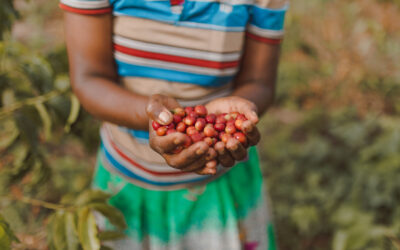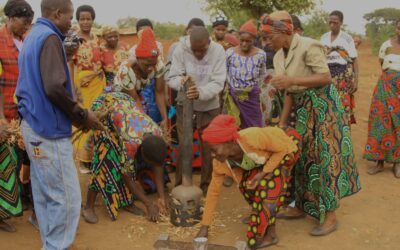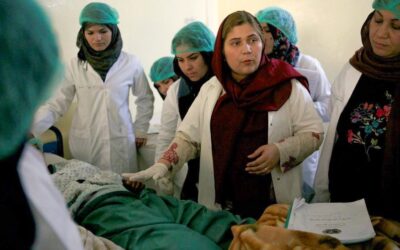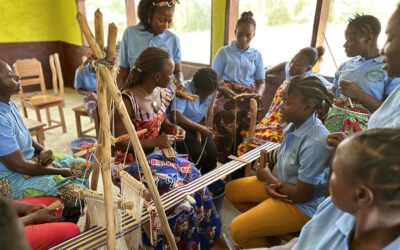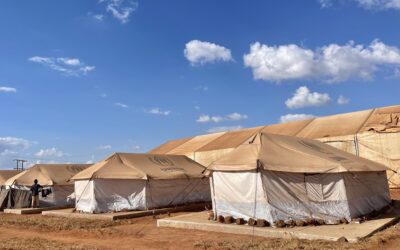RAIN for the Sahel and Sahara
I’ve been trying to grow vegetables in a small household garden for nearly 15 years now, and you’d think that I’d be much better at gardening than I am at this point. Some years I have greater success than others, but most of the time I manage to eke out at least a few vegetables from the pots and raised beds in my front and side yards.
The meager amount of vegetables that I grow are little bonuses for our table — fresh tomatoes for a salad, sauteed Swiss chard for my morning eggs, or tiny carrots for my daughter to munch on.
Growing food for me is just a hobby — an enjoyment in watching the process of food grow from tiny seeds.
I don’t have to worry about the success of the vegetables I’m growing because, like you, I go to the grocery store to buy food for our family. I simply grab my reusable shopping bags, hop in my car, and head to the store to quickly get what our family needs for the week.
But it’s not like that in many places in the world, like Niger.
Nomadic communities in Niger rely on the food they grow to feed their families and sell to others. And growing food in these communities is becoming increasingly difficult because of the effects of climate change, such as higher temperatures, variable rainfall levels, droughts, and flooding.
Partnering with the nonprofit RAIN, One Day’s Wages is working to support these communities as they adapt to climate change, through projects such as training in environmentally sustainable agricultural practices, community gardens, and diversifying local food sources.
Through this partnership, women received training on topics critical to growing and selling food, such as composting, water management, weeding, use of fertilizer, and cash management.
Community engagement is high throughout the project. Folks are on board with learning these methods to grow food to provide for their families and communities.
So next time you buy food at the grocery store, consider what our neighbors around the world in Niger are working towards as they learn and adapt to climate change. Join us as we work to support programs that help communities grow food in the face of climate change.
More stories of impact
When Generosity Sounds Like a Song: An Invitation to Create Together
At One Day’s Wages, we are endlessly inspired by what happens when people bring their full selves—their creativity, curiosity, and courage—into a shared mission. Our work to alleviate extreme poverty has always been built on partnership. Not just with grassroots...
Ways to Give: Simple, Meaningful Options That Fit Your Life
Generosity isn’t one-size-fits-all. At One Day’s Wages, we believe giving should feel accessible, thoughtful, and aligned with your real life—whether you’re just starting out, raising a family, building a business, or planning your legacy. Here are several ways our...
Starting With Strengths: How Asset-Based Development Can Transform Communities
When people talk about community development, the conversation often begins by listing what’s missing: clean water, farming knowledge, health clinics, and more. And while understanding needs is important, defining communities by their needs can paint them as passive,...
One Day’s Wages Named Together Women Rise 2026 Featured Grantee for Maternal Health Work in Afghanistan
One Day’s Wages (ODW) is honored to announce its selection as the 2026 Featured Grantee of Together Women Rise, a powerful global community of women and allies committed to advancing gender equality. This prestigious award includes a $50,000 grant over two years...
Women at Work: Toward Inclusion in the Global Workforce
Can you remember the last time you couldn’t make it to work? Maybe your nanny canceled, and you were left without childcare. Or maybe your car battery died, and you didn’t have a safe way to get to the office. These are the kinds of barriers that women around the...
Standing in Solidarity When the World Turns Away
We cannot fix every broken system. But we can choose to stand in solidarity with those who cross our path. This choice, this posture of care and action, is what fuels us at One Day’s Wages. And it’s why we need each other, now more than ever. Recently, our Global...
LEARN
Leadership
Transparency
Read the Latest
Contact Us
COLLABORATE
Faith Groups
Schools
Businesses
Get Involved
One Day’s Wages exists to alleviate extreme poverty by investing in, amplifying, and coming alongside locally led organizations in underserved communities.
©2026 One Day's Wages is a registered 501(c)(3) organization | Tax ID #26-2566653 | Privacy policy | Terms of use
P.O. BOX 17575 Seattle, WA 98127 | Contact us


